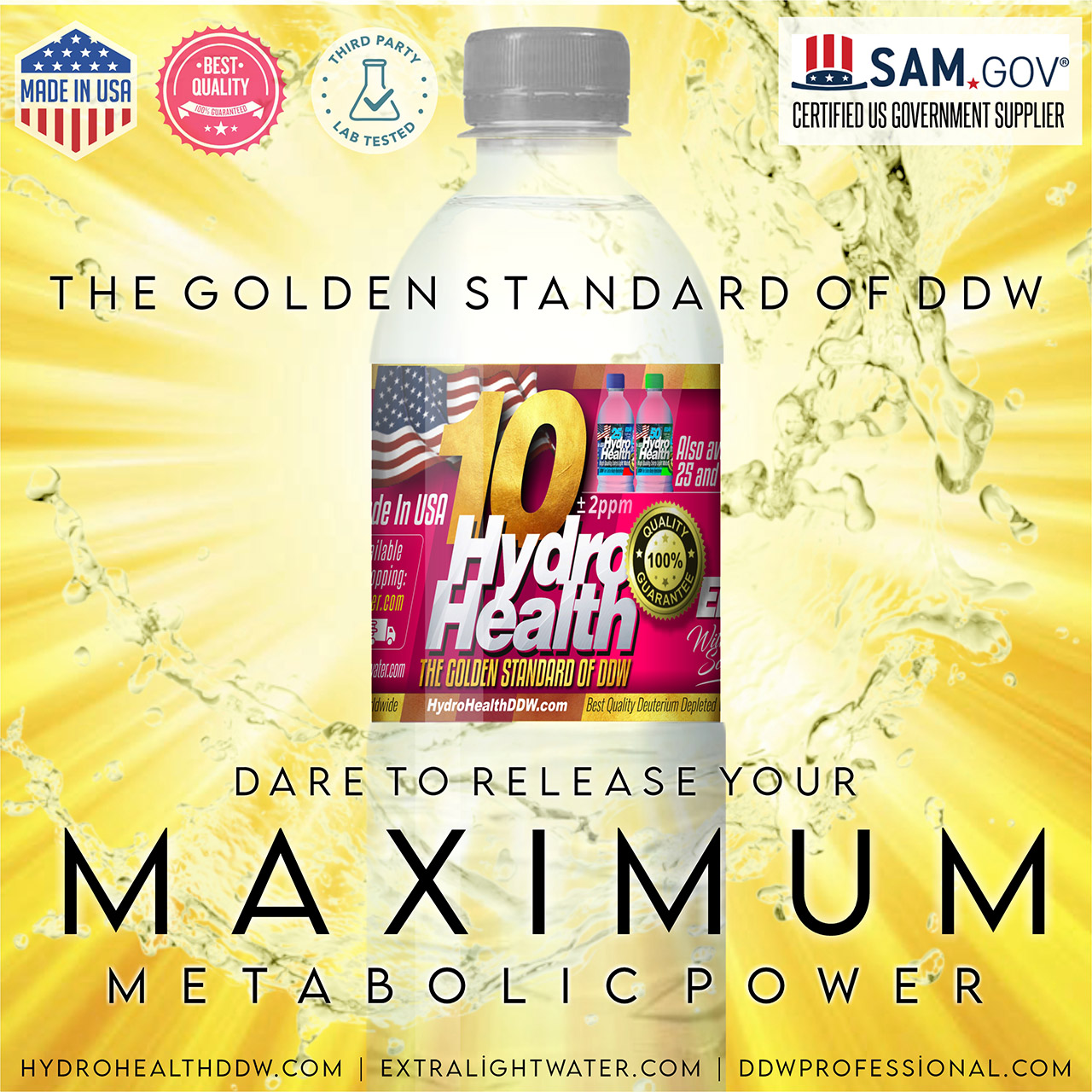As we journey through life, it’s natural to wonder why our energy dips and those pesky age-related issues start creeping in. The secret lies in our cells’ tiny power plants: mitochondria.
These hardworking organelles churn out the energy we need for everything from thinking clearly to keeping our hearts pumping strong.
But as we age, mitochondria can get bogged down, leading to oxidative stress and reduced efficiency. Enter deuterium-depleted water (DDW)—a simple tweak to your daily hydration that might just give your mitochondria the boost they need to fend off the signs of time.
So, what’s DDW? It’s just water with lower levels of deuterium, a heavy hydrogen isotope found in regular H2O. In nature, deuterium is about 150 parts per million, but DDW dials that down significantly. Why does this matter?
Deuterium can sneak into mitochondrial processes and slow things down. Specifically, it interferes with ATP synthase, the enzyme that generates ATP—our body’s energy currency. By reducing deuterium, DDW helps mitochondria spin more smoothly, producing more energy while cutting back on harmful reactive oxygen species (ROS) that accelerate aging. This means less cellular wear and tear, paving the way for better overall health.
Now, let’s talk about how this mitochondrial magic helps prevent age-related diseases.
Take Alzheimer’s disease, for instance—a heartbreaking condition where brain cells deteriorate, leading to memory loss and confusion. Mitochondrial dysfunction plays a big role here, as impaired energy production and increased oxidative stress damage neurons. DDW steps in by optimizing mitochondrial function, potentially reducing that stress and supporting brain health for sharper cognition as we age.
Heart disease is another big one, often striking in our later years with issues like weakened cardiac muscles or irregular rhythms. Your heart is an energy hog, relying on mitochondria for non-stop fuel. High deuterium can bog down this system, contributing to fatigue and inflammation. DDW promotes efficient energy output and metabolic balance, helping maintain cardiovascular vitality and lowering risks associated with aging hearts.
Then there’s type 2 diabetes, where insulin resistance and metabolic slowdowns become more common with age. Mitochondria regulate glucose and fat metabolism, and deuterium buildup can disrupt this, leading to blood sugar imbalances. By enhancing mitochondrial oxidation and efficiency, DDW supports better insulin sensitivity and metabolic health, acting as a gentle ally against this widespread issue.
Cancer, too, often ramps up with age due to accumulated cellular errors. Excess deuterium in mitochondria can fuel uncontrolled cell growth by causing submolecular dysregulation. DDW counters this by depleting deuterium, slowing proliferation in abnormal cells and bolstering the body’s natural defenses—think of it as helping your cells stay on the right track.
Beyond these, DDW shows promise in easing depression and boosting longevity by countering oxidative damage and supporting anti-aging pathways in models like nematodes, where it extended lifespan amid stressors. It’s like giving your body a subtle upgrade, encouraging self-repair without the fuss.
Incorporating DDW into your routine could be as easy as swapping your daily water. It’s a natural, science-backed way to nurture those mitochondria and embrace healthier aging. For a reliable option, check out HydroHealth DDW—pure, low-deuterium water designed to support your vitality every sip of the way.
Read what scientists and medical doctors following the links below. Also read what our customers say in the TESTIMONIALS SECTION.
Scientists and medical doctors show that some of the benefits of drinking DDW include:











